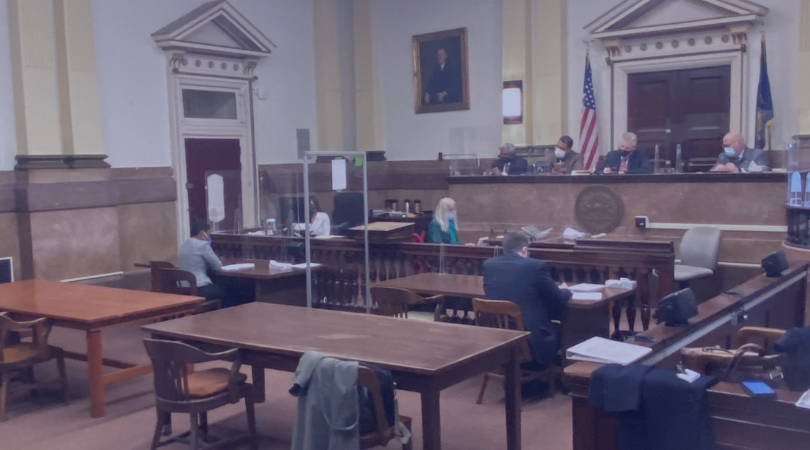[vc_row][vc_column][vc_column_text css=”.vc_custom_1645719737897{padding-top: 20px !important;padding-right: 20px !important;padding-bottom: 20px !important;padding-left: 20px !important;background-color: #263797 !important;}”]On February 24, 2022, Chief Defender Keisha Hudson testified before the PA Sentencing Commission with recommendations on the Commission’s proposed updates to sentencing guidelines.
Read the full testimony below, or download it here
Click here to download the supplemental document: Proposed OGS mitigating factors[/vc_column_text][vc_empty_space][vc_column_text css=”.vc_custom_1645720075520{padding-top: 20px !important;padding-right: 20px !important;padding-bottom: 20px !important;padding-left: 20px !important;background-color: #ffffff !important;}”]On behalf of the Defender Association of Philadelphia, I want to thank the PA Sentencing Commission for convening this series of hearings on the new proposed sentencing guidelines.
As the largest criminal defense law firm in the Commonwealth, the Defender has a practitioner’s understanding of how changes to sentencing guidelines impact people accused of crimes in Philadelphia. We’re very happy to share our perspectives with you this morning.
Defender’s Overall Read on the Sentencing Guidelines
Currently, the courts use a sentencing matrix based on 2 factors:
- An Offense Gravity (OG) score designed to measure the seriousness of the offense; and
- A Prior Record (PR) score, or accounting of the accused’s previous number and types of convictions
These guidelines are not binding on the court, and they provide a range that judges can use to guide their sentencing decisions. Judges aren’t required to follow it – but if they choose to, following the guidelines likely puts them on safer legal ground if the sentence is appealed.
The proposed guidelines make some substantial changes to the recommended sentences for judges to impose. We think that many of these have the potential to be positive, and we commend the Commission’s efforts to mitigate the racial disparities that have been created when our system uses past criminal convictions to trigger enhanced sentencing.
However, we also want to urge the Commission to ensure that the more equitable outcomes we all seek are not diminished by potential exceptions or refinements to these rules. For example, it is essential that periods of incarceration do not toll or interrupt the periods of time calculated as ‘crime free’ for lapsing convictions.
We would like to highlight some areas that do concern us as direct practitioners. Notably, the overwhelmingly majority of the sentencing options call for a custodial sentence and not for restorative sanctions and many of the circumstances for which restorative sanctions are recommended are unlikely to occur in our practice.
Offenses with low OG scores of 2—like tampering with Kosher food or burning a flag—are charges rarely, if ever, seen in Philadelphia. Notably, we didn’t see any offenses designated as a “1,” and recommend that some offenses should be assigned to the lowest possible score. We would also recommend that the section that includes restorative sanctions recommendations be expanded.
Concerns with Offense Gravity Scores
Expanding the number of OG scores and consolidating the number of PR scores effectively narrows the range of recommended sentences on the grid. Additionally, the range by which the sentence may be impacted by aggravating and mitigating factors (the plus/minus on the right side of the matrix) is also much smaller. This may limit the effect of mitigating information presented by Defenders on the client’s actual sentence since the range of sentences the courts may impose, while still remaining within the recommended guidelines, is smaller.
We’re also concerned that, while there is substantial opportunity for aggravating factors to enhance the OG scores, there are not equal opportunities for mitigating factors to reduce the OGS. In fact, the only two factors courts can consider in reducing the gravity of the offense are not related to the circumstances or nature of the offense, but to the defendant’s acceptance of a plea or willingness to cooperate with law enforcement.
To address this inequity, the Defender proposes incorporating a list of 12 factors that will help to ensure the OG score reflects the unique circumstances presented by the facts of the case and the individual appearing before the Court for sentencing.
We have attached all 12 factors to our testimony, and won’t read through them all here, but they include factors like:
- The defendant’s conduct neither caused nor threatened serious harm (-1);
- There were substantial grounds tending to excuse or justify the defendant’s conduct, though failing to establish a defense (-2); and
- The defendant has no history of prior delinquency or criminal activity or has led a law-abiding life for a substantial period of time before the commission of the present offense (-2)
We’re also concerned about the OG score enhancement that arises from association with a criminal gang.
- The definition of a criminal gang is overwhelmingly broad and presents real challenges for our clients and the communities they represent.
- For example: since drug distribution, by definition, frequently involves 3 or more persons, this provision could inadvertently be used to enhance the gravity score for every type of drug case.
- While we recommend removing this provision altogether, we would at least urge the commission to adopt a more specific definition to trigger the gang affiliation enhancement.
We are equally troubled that some sentencing enhancements are already elements of the underlying offense, which raises the very real concern that without specific limiting language, they will be double counted. Similarly, we urge the Commission to include language that prohibits the ‘stacking’ of multiple aggravating factors to enhance the OGS.
PR Score Concerns
We would like to point out that, while aggregating the PR score will likely benefit clients with longer or more serious records, it is also likely to result in harsher treatment for clients with less serious, but perhaps more frequent, contacts with the justice system. Specifically, it’s too easy for the accused to be considered a “medium” for prior record calculations. This is particularly true for clients with a history of substance use or mental health issues.
We urge the Commission to allow for greater differentiation so that one prior conviction for felony shoplifting isn’t treated the same way as one prior conviction for felony rape under the guidelines.
We also urge the Commission to keep repeat instances for possessory offenses, retail theft, and thefts under an F2 as a low offender for PR score.
Conclusion
Once again, I want to thank the Sentencing Commission for undertaking these public hearings to address these serious and complex issues, and for including the Defender Association in this collaborative and thoughtful process.
I invite and encourage you to reach out to our office if you want to further discuss any of the topics I mentioned here or have any additional questions.[/vc_column_text][/vc_column][/vc_row]

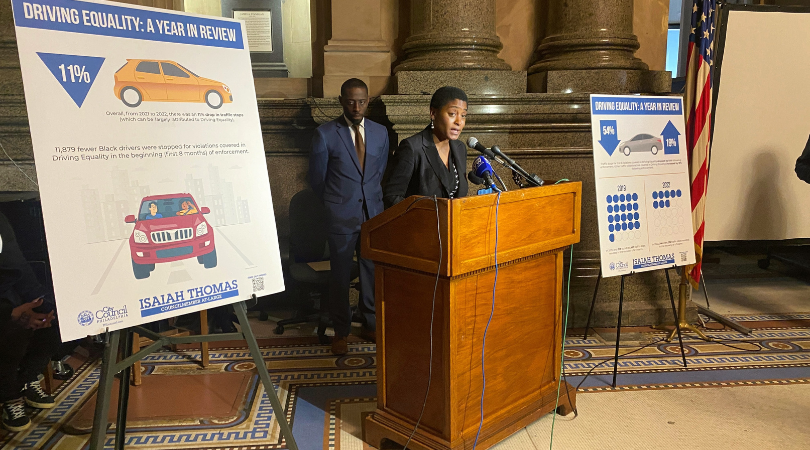
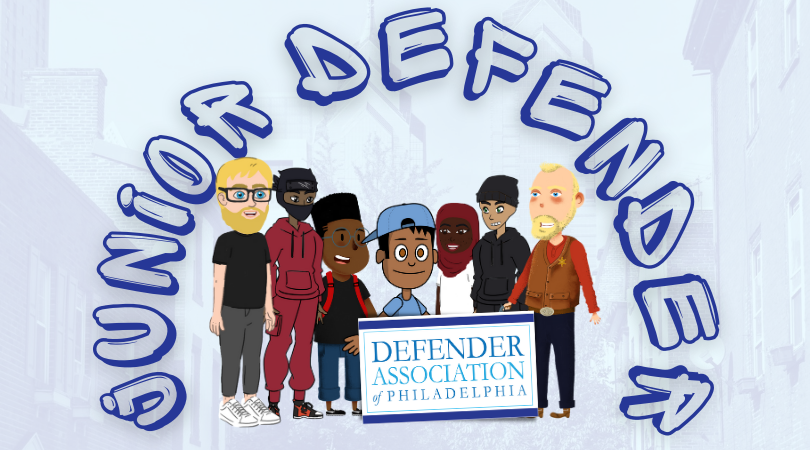
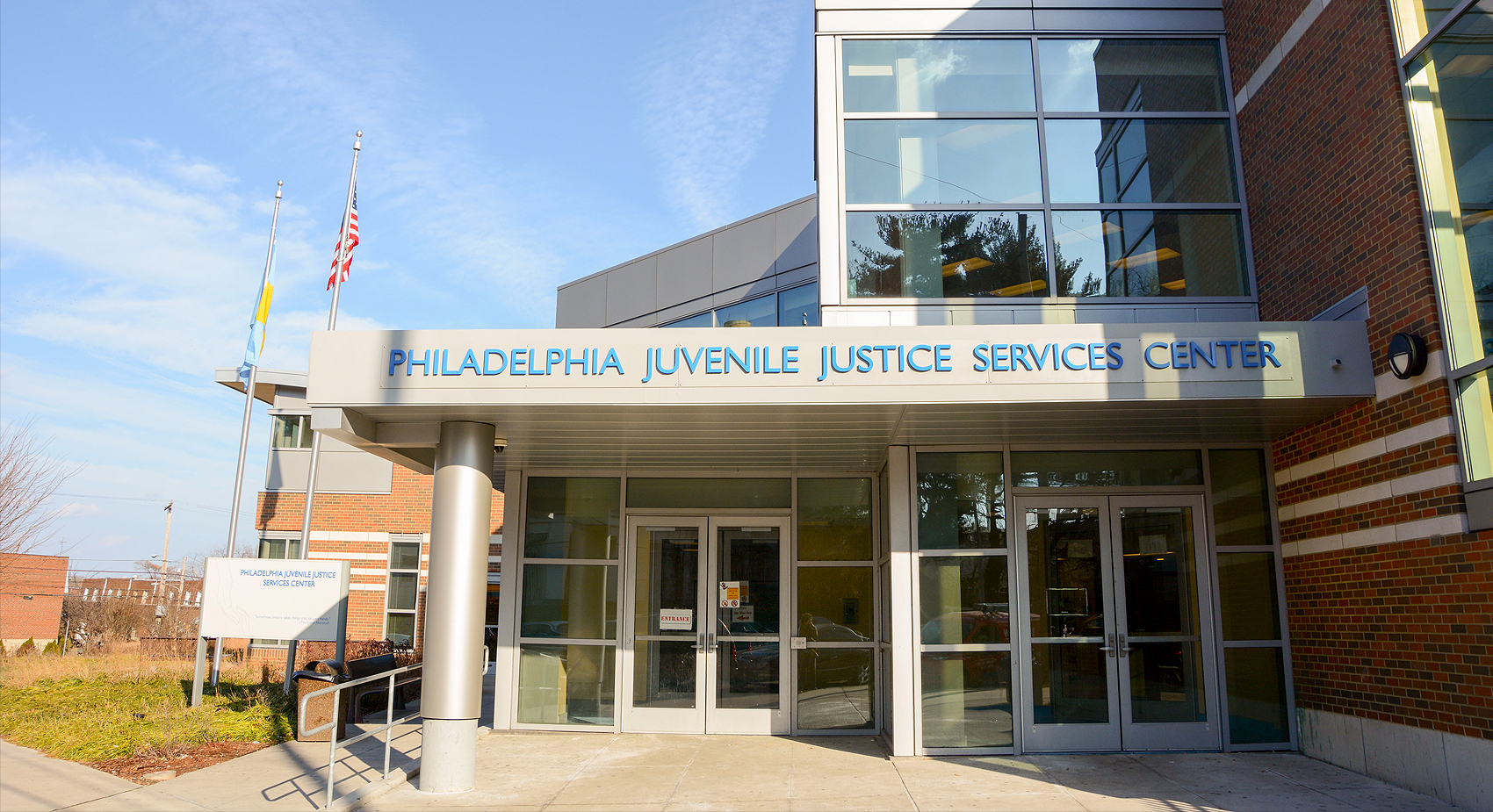

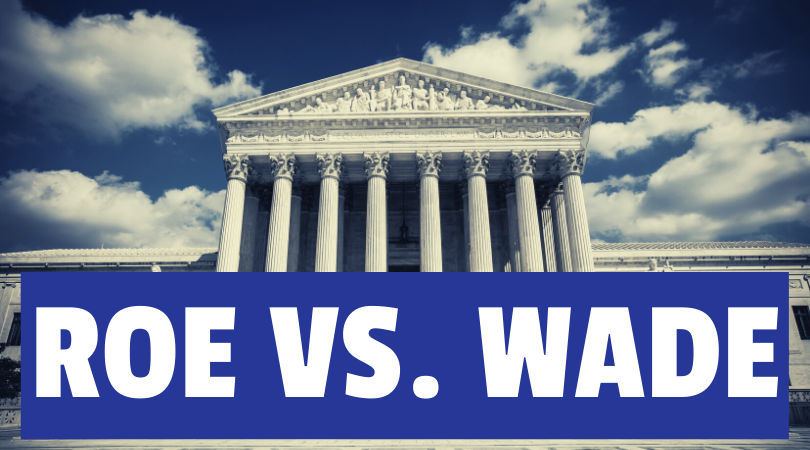

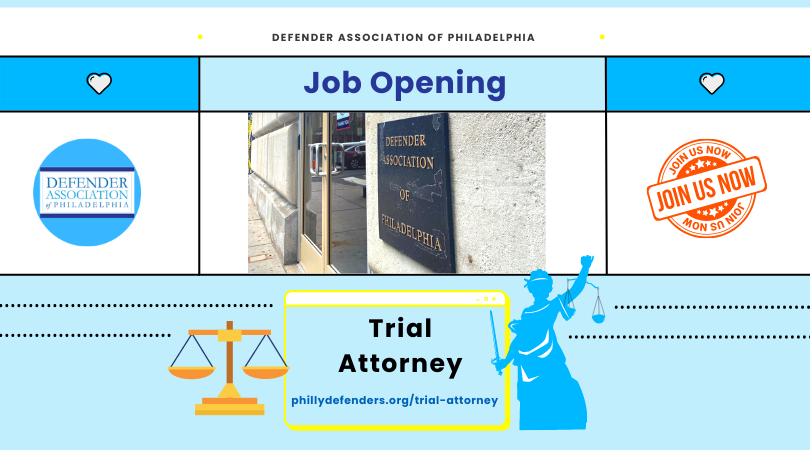

 [/vc_column_text][/vc_column_inner][vc_column_inner width=”1/3″][vc_column_text]
[/vc_column_text][/vc_column_inner][vc_column_inner width=”1/3″][vc_column_text] [/vc_column_text][/vc_column_inner][vc_column_inner width=”1/3″][vc_column_text]
[/vc_column_text][/vc_column_inner][vc_column_inner width=”1/3″][vc_column_text] [/vc_column_text][/vc_column_inner][/vc_row_inner][/vc_column][/vc_row]
[/vc_column_text][/vc_column_inner][/vc_row_inner][/vc_column][/vc_row]